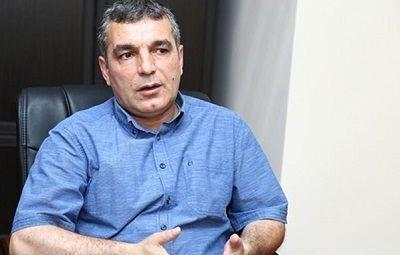(MENAFN- AzerNews)

Qabil Ashirov Read more Besides the agony, tragedy, calamity, and tears, the Garabagh
conflict brought economic collapse to the region. The three
countries in the South Caucasus could trace the footprints of the
three Baltic countries and could be rich and prosperous countries.
However, due to the irredentist foreign policy of Armenia and the
separatist elements in Georgia, the South Caucasus countries could
not enjoy the same well-being.
Billions of dollars have been spent on the military and
accommodations of IDPs and refugees so far, thousands of people
died, land and water resources have been poisoned, and so on.
Despite three years after liberating its territories, Azerbaijan
cannot fully relocate the IDPs who were obliged to leave their
homelands 30 years ago, because most of the former towns and
villages leveled to the ground. Azerbaijan needs billions of
dollars to restore them. Besides, the country cannot fully use the
land for fear of landmines. Most experts say that the demining
process will take dozens of years.
All conflicts in the South Caucasus broke out in the most
beautiful districts of the region. So, they hampered the boost in
tourism. The three countries could have made good fortune from
tourism like Greece, and Portugal.
It is worth noting that in comparison with Azerbaijan, Armenia
paid more. The country was isolated and all mega projects bypassed
Armenia. It became the poorest country in the region and every
third person has left Armenia for thirty years. As a result, the
population dropped from 3.5 million to 2.6 million.
However, Azerbaijan's victory in the 44-day War in 2020 changed
the situation dramatically. First, Armenians did not believe what
had happened and could not accept the results. Some Armenian
factions tried their best to change the situation in their own
favor with different kinds of manipulations, but the anti-terror
measures that commenced on September 19 and lasted 23 hours were
enough to convince Armenians that everything was finished.
Simultaneously with this operation, news about restoring trade
with Azerbaijan circulated in the Armenian media outlets citing the
Armenian Economy Ministry. Could the two countries restore the
economic relationship in the near future?

Azernews asked the opinion of Economist and
Politician Natig Jafarly. According to him, the economic relations
between Azerbaijan and Armenia are impossible devoid of signing the
lasting peace treaty, opening of borders, communications, and
restoration of other official relations. He added if there is no
legal basis to regulate any relations between two countries, it is
impossible to talk about any trade relations.
“However it's good that there are some people who are already
talking about the economic relationship between the two countries
in Yerevan. Azerbaijan has long been ready for the signing of a
peace treaty, recognition of borders, mutually unblocking
communications, and establishment of reciprocal trade relations. If
Armenia signs the peace agreement and takes a step forward
regarding the opening of communications, it will facilitate the
establishment of trade relations,” Jafarly said.
He added that for Azerbaijan, Armenia is an additional market.
It's true that this market is not so big, it's only a market of 2.5
million people. However, it could be profitable for goods,
especially that Armenia needs, i.e. energy carriers, lubricants,
fertilizers, and so on.
“It should be noted that establishing such relations is more
profitable for Armenia. Because it will have access to a market of
10 million. Since Armenia is very dependent on the Russian market,
it mainly needs to export agricultural products to new markets.
From this point of view, the beginning of trade relations between
Armenia and Azerbaijan can benefit both countries. However, as a
prerequisite, the signing of a peace treaty is required for the
creation of a legal basis for such trade,” Natig Jafarly
concluded.